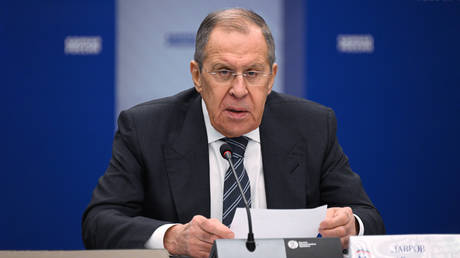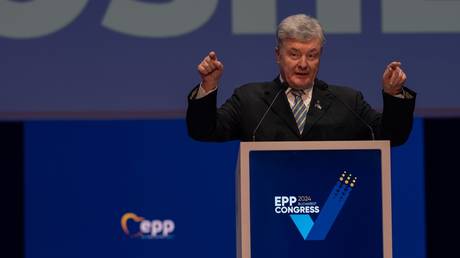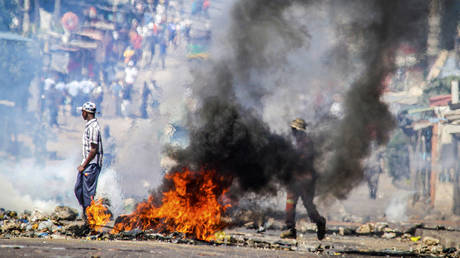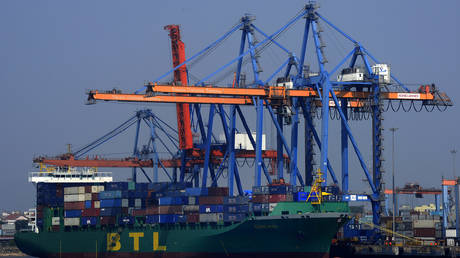Earlier this week, Equal Measures 2030 (EM2030), a coalition of non-governmental organizations from around the world, released its unique Sustainable Development Goals (SDG) Gender Index and an accompanying report. It made for some sober reading. Specifically, according to findings reported by the group, around 857 million women and girls worldwide are living in countries rated as “very poor” for gender equality and about 1.5 billion more live in countries rated as “poor”. What is more, at present, no country has achieved the promise of gender equality envisioned by the UN’s SDGs (agreed to by all of the organization’s member states in 2015), while during the years between 2019 and 2022, approximately 40 percent of countries either stagnated or even reversed with regard to gender equality.
Looking ahead, the SDG Gender Index and report note that global gender inequality could actually be in a worse state in 2030 compared to 2015, when the SDG targets were first set. This is associated with a combination of factors, ranging from armed conflict and climate-related crises to socio-cultural and political developments. In fact, if the world continues to move along the current path, it is expected that gender equality will not be fully achieved until the next century.
Although Eritrea was not one of the 139 countries covered within the recent report by EM2030, the issue of gender equality is no less significant for the nation. In fact, it is – and long has been – a topic of pressing and immense importance. The following paragraphs briefly note the multifaceted importance of gender equality and then highlight how Eritrean women and girls, who have historically faced large and numerous challenges, have demonstrated resilience and contributed greatly to the nation’s freedom, development, and progress.
The multifaceted importance of equality
Gender equality is a fundamental human right and a powerful moral imperative. Equality and non-discrimination remain core principles of the United Nations Charter, which was adopted by world leaders in 1945. Today, gender-based discrimination is prohibited under almost every regional and international human rights treaty existing in the world.
Additionally, a large body of empirical work and numerous case studies conducted in settings and contexts around the world have demonstrated that gender equality and empowerment are closely intertwined with reducing poverty and income inequality, stimulating economic growth, boosting private and public sector performance, and promoting broad-based development. Overall, not only do women and girls who possess agency, are ensured of equal access to opportunities, and are empowered significantly contribute to the overall health, well-being, and productivity of their communities and nations, they also greatly improve the prospects and outlook for future generations.
Highlighting Eritrea’s women and girls
In Eritrea, it has historically been the case, indeed the basic rule, that women and girls were generally perceived as inferior to men.
Today, however, Eritrea without the contributions of its women and girls would be like a bird without wings.
However, from the days of the armed independence struggle, led by the EPLF, and in the years since the achievement of freedom in 1991, Eritrea’s girls and women have proven themselves to be strong and resilient exceptions to outdated, patriarchal rules and barriers through their indefatigable resilience, multifaceted excellence, and substantial contributions.
For example, as Eritrea has registered a number of impressive achievements within the health sector in the years after independence was won, the country’s women, of all backgrounds, have stood tall on the frontlines as medical and health professionals and community healthcare workers. An especially relevant example is how not long ago, during the COVID-19 pandemic, Eritrea’s female health professionals were positioned front and centre, daily serving as a crucial plank within the nation’s multifaceted response and general success.
Additionally, in their roles as educators, peer mentors, and counsellors, serving in institutions that are now located across the length and breadth of the nation, Eritrean women and girls have been providing others, especially young people, not only with practical lessons, vital support, and an abundance of wisdom and knowledge, but also with the inspiration, encouragement, and confidence needed to take their destiny into their own hands and fulfill their potential.
As students and general learners, Eritrean women and girls continue to shine and excel, in the process serving as a powerful demonstration that education truly has no gender. In this, they quietly send a strong riposte to the restrictive, regressive beliefs of bygone decades. Now, when you go into any educational institution in any community within any of the regions in Eritrea, you will invariably find that a large percentage of the students that are enrolled are female. What is more, scroll through the cumulative reports of regional and national academic achievements or performances and what you will quickly come to recognize is that females remain at or near the top of the rankings.
Meanwhile, Eritrean women and girls are playing an active, important role within numerous sectors, such as agriculture, engineering, and various others, while within Eritrea’s nascent mining industry, which increasingly represents one of the nation’s most important and productive, they perform a variety of construction, driving, administrative, technical, and managerial functions.
Another showcase of Eritrean women’s talent, resilience, and substantive progress is their sporting participation and excellence. Although sports, like education and many employment sectors, have historically been regarded as inappropriate or unfitting for girls and women in the country – beliefs deeply rooted in centuries of backwards traditions and norms – Eritrea’s girls and women continue to smash those barriers. In athletics and cycling especially, the country’s young female stars are blazing a trail of success and putting the country on the global sporting map.
Alongside everything else that they have accomplished and contributed to the nation, women in Eritrea have remained at the forefront of defending the country’s territorial integrity and protecting its hard-won sovereignty. Following in the footsteps of past generations of Eritrean women who played a critical role in helping to win freedom, today’s generation of Eritrean women have remained doggedly committed to their sense of patriotic duty. They have stood up proudly, heroically foiling years of external aggression and various efforts that aim to roll back the country’s independence.
Overall, across the past three decades, Eritrea’s young women and girls have come a long way. Reflecting agency, empowerment, and initiative, they have been tangibly contributing within all areas of society and in many diverse, important ways. Breaking historical barriers and shattering regressive, outdated norms and beliefs, they have played a crucial role in their communities, the country’s socio-economic improvement, and the nation’s general development.




